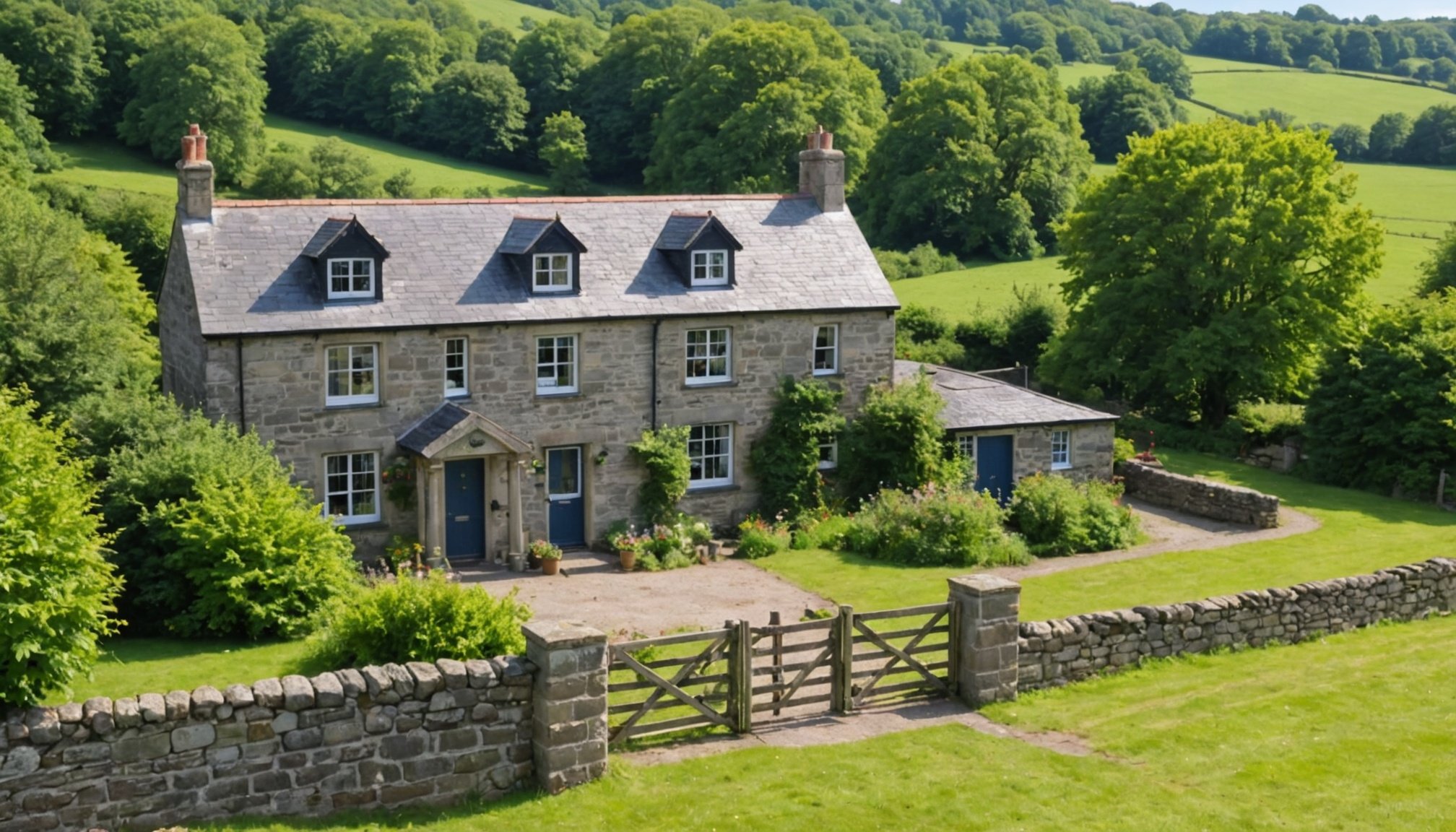Understanding Heritage Designation in Wales
When discussing heritage designation in Wales, it’s essential to understand its significance. It serves as a formal recognition of a site’s historical, cultural, or architectural importance, thereby ensuring its preservation for future generations. This designation can influence property laws, imposing certain obligations and restrictions on property owners to maintain the site’s historical integrity.
Legal Framework for Heritage Sites
Property laws in Wales underpin the legal framework for managing these sites. Heritage designs are primarily governed by local and national conservation policies, incorporating regulations from institutions like Cadw, the historic environment service for the Welsh Government. These laws guide the protection, care, and promotion of heritage sites, balancing development and conservation needs.
Topic to read : Exploring the Financial Benefits of Investing in Joint Property in the UK: A Comprehensive Guide
Criteria for Heritage Designation
The determination process for heritage designation involves evaluating a site against specific criteria: historical significance, architectural value, and cultural importance, among others. Sites must meet these standards to gain official recognition. This rigorous assessment ensures that only locations with genuine cultural or historical merit receive protection under the current property laws. Understanding these elements helps property owners and the public appreciate the value and responsibilities associated with heritage designation in Wales.
Legal Implications of Heritage Designation on Property Ownership
Heritage designation brings transformative impacts on property ownership. Once designated, a property enters a realm where specific legal rights and responsibilities become paramount. Owners retain their rights but must adhere to regulations ensuring the property’s historic character is preserved. This translates into legal obligations such as obtaining permits for alterations, using approved materials, and maintaining the property’s original elements.
In parallel : Top Insurance Solutions for Dual-Use Properties: Homes and Offices in the UK
Legally, the emphasis is on preservation. Owners may find themselves navigating a labyrinth of rules and guidelines. Non-compliance with these preservation laws can result in significant consequences, such as fines or potential legal action. For example, unauthorized changes that compromise the property’s integrity can lead to severe penalties. In extreme cases, owners might even face the risk of losing the property’s heritage status.
It’s crucial for property owners to familiarize themselves with applicable regulations to ensure their rights are protected while also respecting the heritage designation. Consulting legal experts well-versed in heritage laws can provide guidance. This understanding allows owners to make informed decisions about their property, balancing their interests with the community’s historical and cultural values.
Responsibilities of Property Owners Under Heritage Designation
The designation of a property as a heritage site brings specific responsibilities for its owners. One of the primary duties of property owners is the regular maintenance and conservation of the site. This helps preserve its historical significance and ensures safety and structural integrity. Routine tasks may include repairing any wear and tear, maintaining gardens or landscapes, and even undertaking specialised restoration work that aligns with heritage standards.
Changes and adaptations to designated properties are restricted to protect their unique features. Owners must obtain approval for any alterations. This often involves consulting with heritage professionals to ensure modifications are in keeping with the property’s historical character. Generally, permitted changes are those that do not compromise the original design or fabric of the building.
Local authorities and heritage bodies also play an essential role. They oversee compliance by setting regulations and standards for property responsibilities. Besides offering guidance, they may provide resources or funding to aid necessary improvements. It’s crucial for property owners to collaborate with these entities to navigate the complexities of heritage designations, ensuring both legal compliance and the preservation of our shared cultural legacy.
Benefits of Heritage Designation for Property Owners
Receiving a heritage designation can offer substantial advantages to property owners. Most notably, such a designation can potentially lead to an increase in property value. This occurs as designated properties often gain historical significance, making them more attractive to discerning buyers.
Additionally, property owners can access numerous financial incentives and grants. These grants may help subsidize the cost of maintaining or restoring historical features in compliance with heritage standards. Expert advice is also typically available, guiding owners through the process and ensuring their properties are preserved for future generations.
Beyond financial benefits, heritage designation can foster a sense of community pride. When properties are recognized for their historical value, they contribute to the local identity, sparking an increase in tourism. Visitors interested in culture and history often seek out designated sites, boosting local businesses and economy.
- Property Value: May increase due to historical significance.
- Incentives: Access to grants for maintenance and restoration.
- Community Interaction: Enhances pride and encourages tourism.
These factors, collectively, make heritage designation appealing, offering a blend of financial benefits and community engagement. Property owners can enjoy these incentives while contributing to preserving history.
Financial Implications of Heritage Designation
Designating a property as a heritage site brings a sense of pride and historical value, but it also involves specific financial implications. Firstly, owners must consider the costs associated with maintaining and preserving their heritage properties. Often, these expenses surpass those of non-designated buildings due to the need for specialised materials and craftsmen to uphold historical integrity. Owners may need to invest in regular upkeep to prevent deterioration, which can be costly.
In terms of tax implications, owning a designated heritage property can offer certain advantages. Some regions provide tax reliefs or reductions to alleviate the financial burden on owners, recognising the public benefit of conserving historical sites. These tax benefits can be an enticing factor for potential buyers of heritage properties.
For those concerned about funding, various conservation funding options are available. Government grants and private resources exist specifically for the restoration and conservation of heritage sites. These funding sources can significantly lessen the financial strain, enabling owners to preserve their properties while maintaining fiscal sustainability. Owners should explore these avenues thoroughly to make the most of available resources.
Understanding these financial implications is key to making informed decisions about heritage property ownership.
Case Studies: Experiences of Affected Property Owners
Real-life experiences offer valuable insights into the heritage impacts of property designation in Wales. Understanding these can be enlightening for prospective property owners.
Personal Experiences and Challenges
Testimonials from property owners reveal a variety of challenges faced during their preservation efforts. Many found adhering to strict conservation guidelines demanding, both time-wise and financially. For instance, one owner’s quest to restore a historical building faced delays due to sourcing period-appropriate materials. This demonstrates the dedication required to maintain heritage properties authentically.
Success Stories
However, these experiences also highlight significant success stories that showcase the positive impact on communities. One memorable case involved a dilapidated estate that, once restored, became a hub for local events, boosting both community spirits and local commerce. These successes not only preserve the rich history and architecture but also contribute economically and socially. Such transformations often elevate the cultural significance of these sites, turning challenges into triumphs.
Heritage Impacts
Designated properties in Wales evoke a sense of pride and responsibility in owners, evident through their testimonials. The real-life examples showcase how these sites bring communities together, preserving history while fostering growth. The legacy left for future generations often outweighs the initial hardships experienced.











